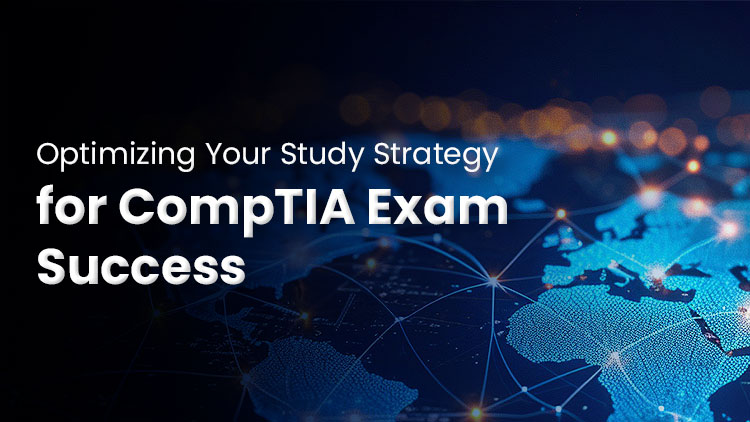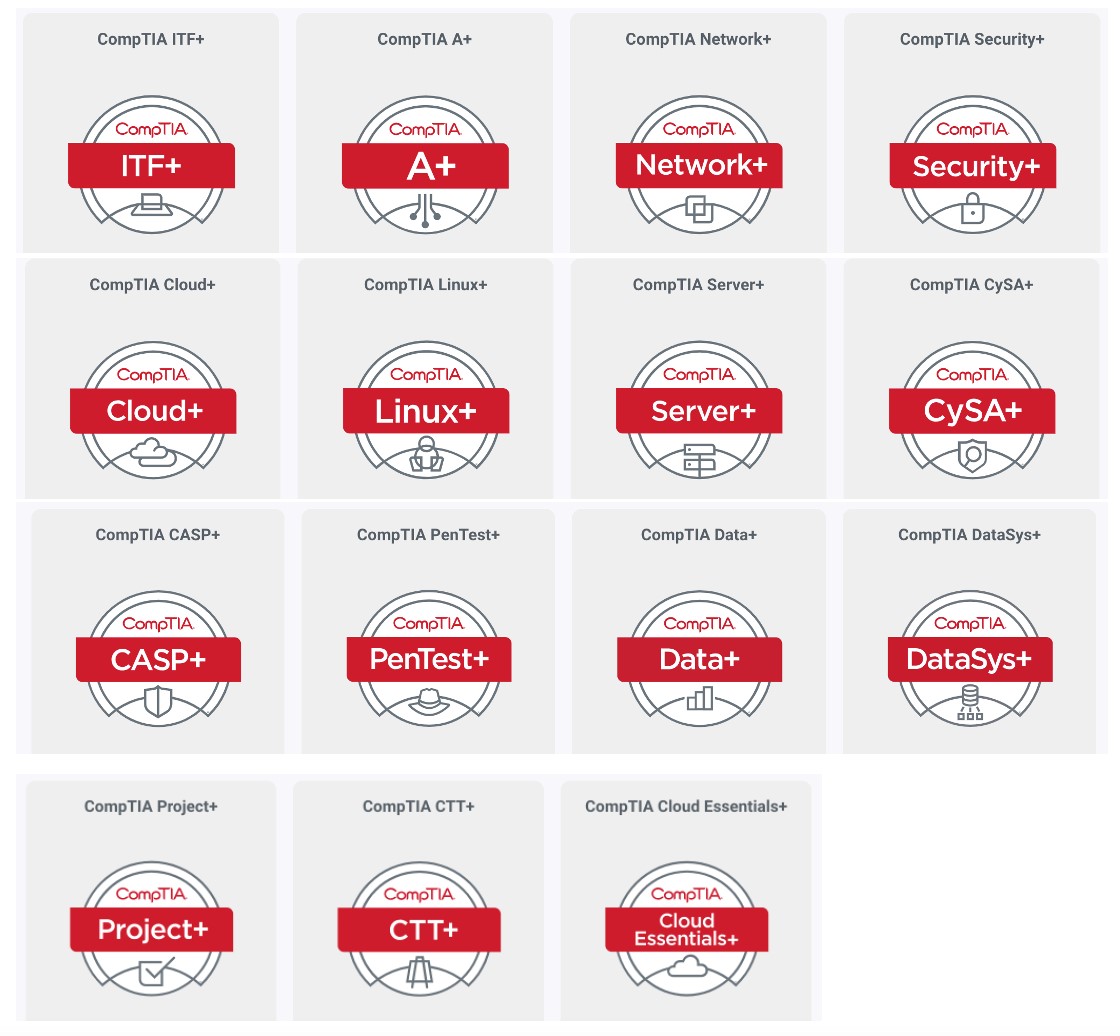
Optimizing Your Study Strategy for CompTIA Exam Success

Introduction
CompTIA certifications are your golden ticket to unlocking a world of IT opportunities. Whether you’re aiming for an entry-level certification like A+, mastering networking with Network+, or diving into cybersecurity with Security+, you need more than just book smart to pass these exams. With a mountain of content to tackle increasingly complex questions, a strategic approach to studying can make all the difference between passing with flying colors or facing a retake.
In this blog, we’ll reveal the secrets to building an efficient study plan, choosing the best resources, and using proven techniques to boost your retention and confidence. Achieving a CompTIA certification is a powerful way to boost your IT career, and we’re here to help you make it happen! At VERSAtile Reads, we offer Exam Cram Notes and practice questions that cover everything you need to ace your CompTIA exams. Why wait? Kickstart your certification journey today and open the door to endless opportunities in IT. Visit VERSAtile Reads now to explore our CompTIA course offerings and take the first step toward exam success!
What is CompTIA?
CompTIA, founded in 1982, is a leading non-profit trade association in the IT industry, fostering collaboration, education, and global standards. It provides certifications across various IT domains, including cybersecurity, networking, and cloud computing, serving professionals at all career stages. Known for its rigorous certification process, CompTIA’s credentials are globally recognized and highly valued, driving industry innovation and best practices. CompTIA’s certifications validate expertise and serve as catalysts for career growth in the ever-evolving tech landscape.
The Leader in IT Certifications
In the fast-paced landscape of Information Technology, one name stands out as the unequivocal leader in the realm of certifications—CompTIA. CompTIA has redefined industry standards as a pioneering force and set the benchmark for excellence in IT certifications.
- Setting the Standard: CompTIA certifications have become synonymous with proficiency and expertise, setting the standard for IT professionals globally. The organization’s rigorous certification processes and cutting-edge content ensure that those who hold CompTIA certifications are knowledgeable and equipped with the skills demanded by the ever-evolving tech landscape.
- Comprehensive Certification Portfolio: From foundational certifications for beginners to advanced credentials for seasoned professionals, CompTIA offers a comprehensive suite of certifications that caters to diverse skill levels and IT domains. This breadth ensures that individuals can embark on a continuous learning journey, enhancing their expertise at every career stage.
- Industry-Driven Innovation: CompTIA does not just keep pace with industry trends; it drives innovation. The organization actively collaborates with industry experts, continually updating its certifications to reflect the latest technologies and best practices. This forward-thinking approach ensures that CompTIA-certified professionals are at the forefront of technological advancements.
- Global Recognition: CompTIA certifications are not confined by geographical borders. They are recognized and respected worldwide, making them a valuable asset for professionals seeking international opportunities. The global recognition of CompTIA certifications opens doors to a myriad of career possibilities and ensures that certified individuals are competitive on a global scale.
- Career Catalyst: Beyond being a certification body, CompTIA functions as a career catalyst. The certifications offered by CompTIA are not just badges; they are career milestones. Holding a CompTIA certification signifies technical proficiency, a commitment to excellence, and a dedication to adapting seamlessly in a rapidly changing industry.
CompTIA Certifications
- ITF+: IT Fundamentals (ITF+) encompasses a distinctive range of IT subjects, offering a comprehensive foundation in the technological concepts and practices prevalent in contemporary organizational settings.
- A+: A+ is the initial stepping stone for those entering the IT field, with performance-based exams certifying fundamental IT skills applicable across various devices and operating systems.
- Network+: Network+ attests to the crucial skills needed to confidently design, configure, manage, and troubleshoot both wired and wireless devices.
- Security+: The Security+ certification is an internationally recognized credential confirming the fundamental abilities needed to carry out essential security tasks and advance in IT security.
- Cloud+: Cloud+ validates the expertise necessary to securely implement, maintain, and leverage cloud technologies.
- Linux+: Linux+ is an internationally recognized certification affirming the technical competencies essential for junior-level Linux administrators.
- Server+: Server+ showcases the technical knowledge and skills required to perform diverse server platform tasks.
- CySA+: Cybersecurity Analyst (CySA+) applies behavioral analytics to enhance the overall state of IT security within the cybersecurity field.
- CASP+: CASP+ represents an advanced certification validating critical thinking and judgment across various security disciplines in complex environments.
- PenTest+: CompTIA PenTest+ targets intermediate-level cybersecurity professionals engaged in penetration testing to address network vulnerabilities.
- Data+: CompTIA Data+ is an early-career data analytics certification that instills confidence in applying data analysis to real-world scenarios and facilitating data-driven business decisions.
- DataSys+: CompTIA DataSys+ covers the knowledge and skills needed to deploy, maintain, and safeguard data businesses and organizations collect.
- Project+: Project+ verifies the ability to initiate, manage, and successfully complete projects or business initiatives within specified timelines and budgets.
- CTT+: CTT+ certifies knowledge and proficiency in tools and techniques essential for effective teaching in contemporary learning environments.
- Cloud Essentials+: Cloud Essentials+ demonstrates that IT and non-technical professionals possess the business acumen required to make informed decisions and recommendations regarding cloud services.

-
Set Clear Goals and Understand the Exam Structure
Start by understanding the specific CompTIA exam, its content, and its structure. Review the official exam objectives to focus on the most relevant areas. For example, the CompTIA A+ exam is split into Core 1 and Core 2, covering different domains like hardware and networking.
Action Steps:
- Download official exam objectives
- Familiarize yourself with the exam format
- Focus on areas needing the most attention
-
Create a Study Schedule
Plan your study sessions based on your knowledge, available time, and the exam date. Balance your studies with practice exams and review sessions.
Action Steps:
- Use a calendar to plan study sessions
- Break tasks into daily/weekly goals
- Include time for practice exams and review
-
Use a Variety of Study Resources
Incorporate various study materials such as official CompTIA guides, video courses, practice exams, and flashcards.
Action Steps:
- Use CompTIA’s official study guides
- Supplement with video courses and interactive content
- Take regular practice exams
- Use flashcards for quick study
-
Focus on Hands-on Practice
CompTIA exams often include performance-based questions. Build practical skills through hands-on experience, such as setting up a home lab or using simulation tools.
Action Steps:
- Build a home lab with virtual machines
- Use network simulation tools for practice
- Troubleshoot common issues aligned with the exam
-
Incorporate Active Learning Techniques
Engage with material through active learning techniques, such as teaching the material or answering practice questions to reinforce knowledge.
Action Steps:
- Teach material to others
- Summarize key points after study sessions
- Regularly take practice questions
-
Review and Reinforce
In the final weeks, focus on reviewing challenging areas, taking practice tests, and revisiting important topics to ensure readiness.
Action Steps:
- Review practice test results
- Focus on weak areas
- Use the final week for flashcards and practice tests
Conclusion
Passing a CompTIA certification exam requires more than just memorizing facts. It demands a strategic, well-rounded study approach that combines understanding exam objectives, using diverse study materials, applying hands-on practice, and leveraging the support of study groups and online communities. By optimizing your study strategy with these tips, you’ll be well-prepared to conquer your exam and earn the certification that will propel your IT career forward.
FAQs
1. How long should you study for a CompTIA exam?
The time you need to prepare for a CompTIA exam depends on your prior knowledge and experience in the subject. On average, many candidates spend 2-3 months preparing for an exam like CompTIA A+ or Security+, studying a few hours each week. If you’re already familiar with IT concepts, you might need less time. Set a clear study plan based on the exam objectives to guide your preparation.
2. What are performance-based questions, and how can you prepare for them?
Performance-based questions (PBQs) require hands-on problem-solving rather than selecting multiple-choice answers. They assess your practical ability to configure, troubleshoot, or manage IT systems. To prepare for PBQs, set up a home lab with virtual machine.
3. Are practice exams important for passing a CompTIA certification?
Yes, practice exams are crucial. They simulate the real test, familiarize you with the format, and highlight areas for improvement. Versatile Reads offers practice questions to help you prepare and boost your confidence for the exam.
4. What is the best way to stay motivated while studying for a CompTIA exam?
To stay motivated, set achievable study goals and break them into manageable daily or weekly tasks. Joining study groups or online communities can provide accountability and support. Celebrating small milestones—like completing practice tests or mastering difficult topics—also keeps motivation high throughout the study process.
- Published Date:



